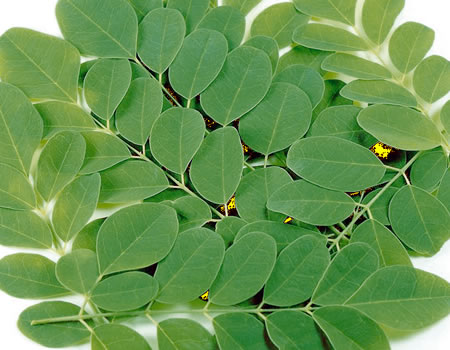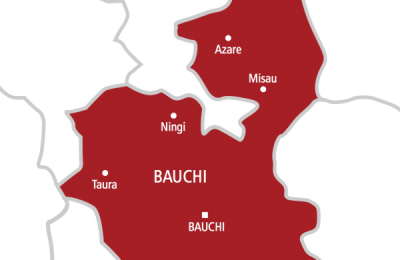
Researchers say that incorporating moringa into the diet can improve the nutritional status of pregnant and nursing mothers and help to combat malnutrition and iron deficiency anaemia (IDA) among children.
In a new study, researchers said fresh moringa leaf consumption during pregnancy increases iron levels and prevents anaemia during pregnancy in a community-based comparative cross-sectional study done between May and June 2022 in Southern Ethiopia.

The study, published in the International Journal of Women’s Health, involved 230 fresh moringa leaf consumers and 230 non-consumers pregnant women. A questionnaire was used to collect information about them and blood samples taken to determine their blood levels.
Women who consumed fresh moringa leaf in the last month for at least four days per week, regardless of amount or frequency were classified as consumers.
According to the study, the overall mean haemoglobin level among these pregnant women was 11.76 g/dl among fresh moringa leaf consumers and 11.45 g/dl among non-consumers. The haemoglobin level was 0.90g/dl higher among fresh moringa leaf consumers than nonconsumers.
Also, haemoglobin level was found to be affected by place of residence, number of under-five children, bleeding during the current pregnancy, current antenatal care visit, headed of the households, and distance to the nearest health facilities.
They declared: “The intake of moringa in different forms treats anaemia. This may be due to the nutrient content of moringa. Moringa is an iron-rich food source with easily digestible proteins, vitamins and minerals. Also, the consumption of fresh moringa leaf increases the level of protein, vitamins A and C in the blood. Studies indicated that vitamin C enhances the bioavailability and absorption of iron.”
Gramme for gramme, fresh moringa leaves have been reported to contain seven times more vitamin C than oranges, four times more vitamin A than carrots, three times more iron than spinach, four times more calcium than milk, and three times more vitamin D than cereals. They also contain more potassium than bananas and twice as much protein as yogurt.
Pregnancy anaemia occurs when the red blood cells meant to carry oxygen to the tissues in the body is not enough. Iron deficiency during pregnancy is one of the leading causes of anemia and it usually develops slowly over time.
Despite different interventions to reduce the incidence of anaemia like dietary counselling and iron with folic acid supplementation (IFAS) during pregnancy through antenatal care, adherence to iron with folic acid supplementation is usually low, which is insufficient to address the problem as needed.
As a result, consumption of culturally accepted iron-rich foods source is essential to prevent the incidence of anaemia during pregnancy.
Moringa is a culturally accepted food source rich in iron and 100g of locally cooked fresh moringa leaf in southern Ethiopia provides 43.5% of the recommended daily iron intake for adults.
Previous studies conducted in different areas of the world revealed that before and after the intervention of moringa capsule or powder among pregnant women, reported an increase in hemoglobin level.
Studies showed moringa is safe for pregnant women and has a variety of nutritional and health benefits, including helping to prevent DNA damage caused by stress and adverse pregnancy outcomes and improving breast milk supply.
In addition, moringa leaf extract is reported to reduce anxiety levels among pregnant women with high blood pressure and affect their blood pressure by increasing serotonin levels.
In a review published in Nutrients, researchers evaluated studies conducted up until March 2023 that looked at the possible association between the use of Moringa during pregnancy and breastfeeding to the health status of both the mother and the baby.
These included studies where Moringa is administered during pregnancy or in the postnatal period in the form of leaf powder (MOLP), as a leaf extract (MLE), as an ingredient associated with other supplements or in preparations.
From their assessment, they said that it appears that moringa influences the health of mothers and infants during critical periods of pregnancy and breastfeeding, all while being safe for use during pregnancy and breastfeeding.
These include the mother’s haematochemical profile, milk production, the child’s growth and development outcomes and the incidence of morbidity during the first 6 months of life.
The hemochemical profile refers to the blood composition and health indicators, suggesting that Moringa could help in managing anaemia and enhancing overall maternal health during pregnancy and lactation.
Moringa appears to positively influence milk production in breastfeeding mothers. This is crucial, as adequate milk supply is essential for the infant’s growth and development during the early months of life.
Importantly, none of the studies included in the review reported any contraindications for the use of Moringa during pregnancy and lactation, suggesting that it is generally considered safe for consumption during these critical periods, making it a viable option for supplementation.
Read Also: Lagos govt vows to go tough on owners of buildings








